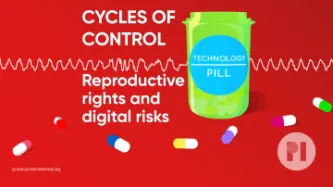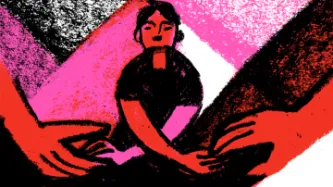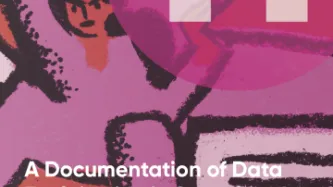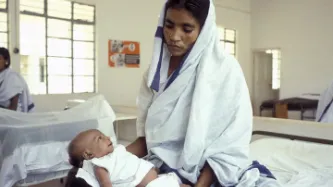Search
Content type: Video
LinksLearn more about Repro uncensoredRepro Uncensored incident report formAdriana Smith's caseMore about Adriana's casePrivacy International's Menstruation apps researchResearch on Bing's Typo-searchingMSI on the Global impact of Roe V. Wade being overturnedReport by Fòs Feminista on the Global Impact of the Dobbs DecisionMeta getting rid of factchecking functionAmazon USA report called Obstacles to Autonomy, which includes info on advertising account restrictionsAn report by the Independent…
Content type: Long Read
Period tracking apps and the rollback of reproductive rightsThe aftermath of the overturning of Roe v. Wade in the United States (US) sparked widespread debate and concern that data from period tracking apps could be use to criminalise those seeking abortion care.While the surveillance and criminalisation of reproductive choices are neither new nor unique to the US, the scale and intensity of today’s crisis continue to grow. To put it into perspective, 22 million women and girls of reproductive…
Content type: Long Read
IntroductionHarnessing new digital technology to improve people’s health is now commonplace across the world. Countries and international organisations alike are devising digital health strategies and looking to emerging technology to help solve tricky problems within healthcare. At the same time, more and more start-ups and established tech companies are bringing out new, and at times innovative, digital tools aimed at health and wellbeing.
Content type: Long Read
Introduction
The 28th of September marks International Safe Abortion Day. It remains a day necessary to mobilise and raise awareness of the continued struggles women and girls face when accessing reproductive healthcare, including access to safe abortion. Across the world, abortion continues to be criminalised, restricted and in some places under attack. All of which constitute severe obstacles for women and girls to fully exercise their human rights, particularly their right to privacy, which…
Content type: Examples
Following the US Supreme Court's Dobbs decision that paved the way for states to enact legislation criminalising abortion, health advocates warn that the surveillance software schools use to algorithmically monitor students' messages and search terms could be weaponised against teens looking for reproductive health care. These systems can automatically alert school administrators, parents, or police when they detect "dangerous behaviour", which may include anything from imminent suicide…
Content type: Long Read
In the wake of the recent news of the US Supreme Court’s decision to overturn the ruling of Roe v Wade in its ruling in Dobbs v Jackson Women's Health Organization, headlines have been dominated by conversations around privacy and fears of how the criminalisation of abortion care and surveillance by law enforcement will play out in a tech driven world.This discussion is increasingly important as governments move towards digitising their healthcare systems and as more individuals choose to…
Content type: Long Read
This piece is a part of a collection of research that demonstrates how data-intensive systems that are built to deliver reproductive and maternal healthcare are not adequately prioritising equality and privacy.
What are they?
Short Message Services (SMS) are being used in mobile health (MHealth) initiatives which aim to deliver crucial information to expecting and new mothers. These initiatives are being implemented in developing countries experiencing a large percentage of maternal and…
Content type: Long Read
For over 20 years with the start of the first use of ICTs in the 1990s, we have seen a digital revolution in the health sector. The Covid-19 pandemic significantly accelerated the digitalisation of the health sector, and it illustrates how fast this uptake can be and what opportunities can emerge; but also, importantly, the risks that it involves.
As we've said many times before, whilst technologies can be part of the solution to tackle some socio-economic and political challenges facing our…
Content type: Long Read
India’s Mother and Child Tracking System (MCTS) is a system that collects vast amounts of data about pregnant people, children, and families. It is an initiative by the Ministry of Health and Family Welfare in India, and was first trialled in 2009. It was then rolled out nation-wide in 2011. Its declared purpose, as stated in the press release accompanying it, was to facilitate “ensuring timely delivery of full spectrum of health care services to pregnant women and children up to 5 years of age…
Content type: Long Read
1. What are the barriers to access safe and legal abortion care?
The Indian state’s approach to reproductive rights historically has focused on population control rather than enhancing individual autonomy and removing structural barriers to reproductive health services, which is reflected in the barriers to provision of services. As a consequence of the early adoption of family planning and population control measures in the 1950s, India was one of the first countries to legislate on abortion…
Content type: Press release
PI's new report documents 10 tactics that are being developed and deployed to delay or curtail access to reproductive healthcare globally. Especially given the current crisis, as digital services become even more important, we hope this report will highlight how those opposed to reproductive rights are actively developing technical tools to delay or curtail access. A downloadable multi-media asset is attached.
Examples of tech being developed:
Developing digital dossiers about those…
Content type: Long Read
The organised opposition to sexual and reproductive rights has gone digital. Data exploitative tech is being developed that is capable of obtaining vast amounts of intimate information about people’s reproductive health, and delaying or curtailing access to reproductive healthcare.
Technology provides incredible opportunities to democratise access to reproductive health information, services, and care. It can play a vital role in protecting the lives of those needing sexual and reproductive…
Content type: News & Analysis
This week International Health Day was marked amidst a global pandemic which has impacted every region in the world. And it gives us a chance to reflect on how tech companies, governments, and international agencies are responding to Covid-19 through the use of data and tech.
All of them have been announcing measures to help contain or respond to the spread of the virus; but too many allow for unprecedented levels of data exploitation with unclear benefits, and raising so many red flags…
Content type: Long Read
This piece was written by Aayush Rathi and Ambika Tandon, who are policy officers at the Centre for Internet and Society (CIS) in India. The piece was originally published on the website Economic Policy Weekly India here.
In order to bring out certain conceptual and procedural problems with health monitoring in the Indian context, this article posits health monitoring as surveillance and not merely as a “data problem.” Casting a critical feminist lens, the historicity of surveillance practices…
Content type: News & Analysis
Photo by Ray Witlin / World Bank CC BY-NC-ND 2.0
This article has been written by Ambika Tandon, Policy Officer at the Centre for Internet and Society, in collaboration with Privacy International.
On October 17th 2019, the UN Special Rapporteur (UNSR) on Extreme Poverty and Human Rights, Philip Alston, released his thematic report on digital technology, social protection and human rights. Understanding the impact of technology on the provision of social protection – and, by extent, its…













